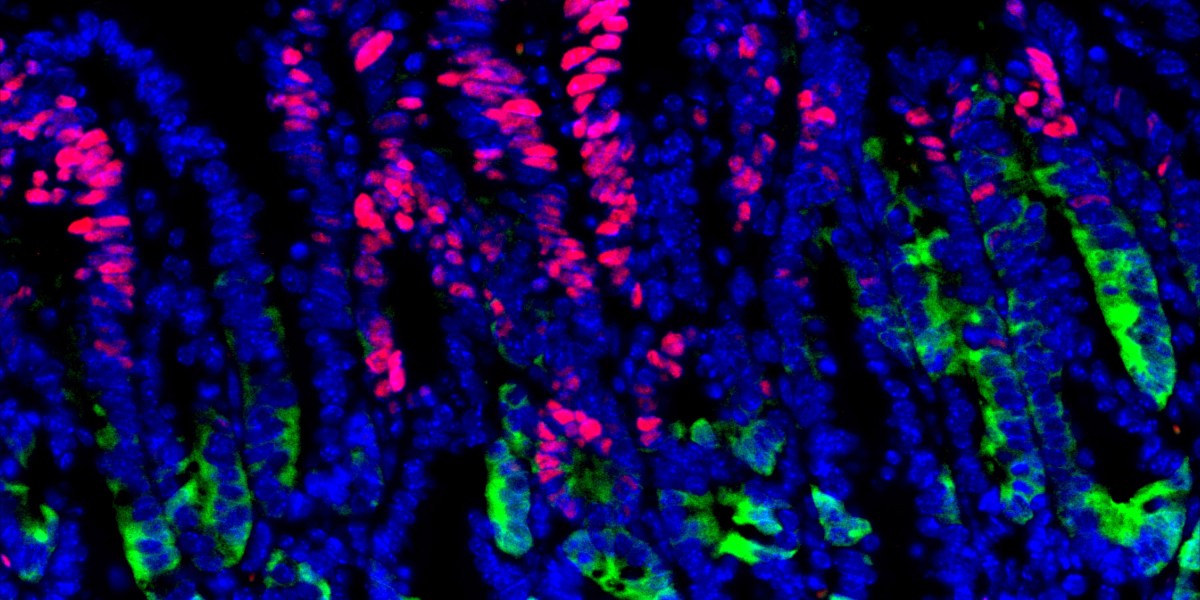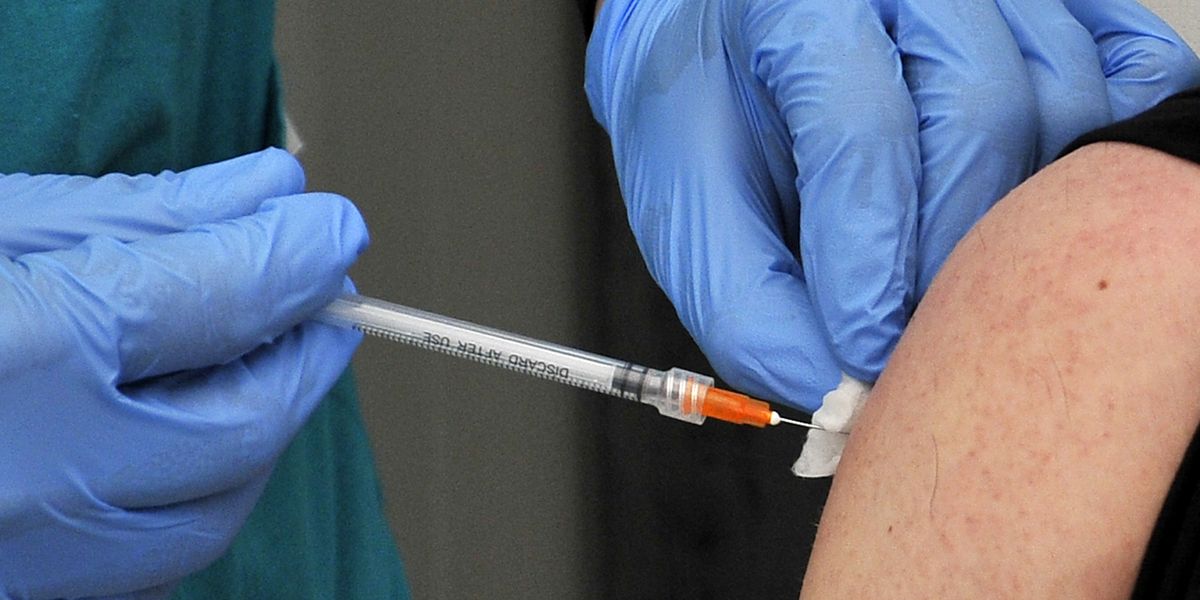

In the mice, the researchers observed a dramatic increase in the tumors’ expression of SOX17. This gene encodes a transcription factor that is normally active only during embryonic development, when it helps control development of the intestines and the formation of blood vessels.
The experiments revealed that when SOX17 is turned on in cancer cells, it helps them create an immunosuppressive environment. Among its effects, SOX17 prevents cells from synthesizing the receptor that normally detects interferon gamma, one of the immune system’s primary weapons against cancer cells. Without those receptors, cancerous and precancerous cells can simply ignore messages from the immune system, which would normally direct them to die off.
The absence of this signaling also lets cancer cells minimize their production of molecules called MHC proteins, which display cancerous antigens to the immune system, and prevents them from producing molecules called chemokines, which normally recruit T cells that would help destroy the cancerous cells.
When the researchers generated colon tumor organoids with SOX17 knocked out, and implanted those into mice, their immune system was able to attack them much more effectively. This suggests that blocking the gene or the pathway that it activates could offer a new way to treat early-stage cancers before they grow into larger tumors.
“Just by turning off SOX17 in fairly complex tumors, we were able to essentially obliterate the ability of these tumor cells to persist,” says MIT research scientist Norihiro Goto, the lead author of a paper on the work.
But transcription factors such as the one encoded by the SOX17 gene are considered difficult to target using drugs, in part because of their structure. The researchers now plan to identify other proteins that this transcription factor interacts with, in hopes that it might be easier to block some of those interactions. They also plan to investigate what triggers SOX17 to turn on in precancerous cells.
“Activation of the SOX17 program in the earliest innings of colorectal cancer formation is a critical step that shields precancerous cells from the immune system,” says Ömer Yilmaz, an MIT associate professor of biology, a member of the Koch Institute for Integrative Cancer Research, and one of the study’s senior authors. “If we can inhibit the SOX17 program, we might be better able to prevent colon cancer, particularly in patients that are prone to developing colon polyps.”
24World Media does not take any responsibility of the information you see on this page. The content this page contains is from independent third-party content provider. If you have any concerns regarding the content, please free to write us here: contact@24worldmedia.com

Do you believe the Covid vaccine had negative side effects? VOTE HERE

Latest Google layoffs hit the Flutter and Python groups

‘Women’s rights have been attacked constantly!’

Here’s your chance to own a decommissioned US government supercomputer

AWS S3 storage bucket with unlucky name nearly cost developer $1,300

FTC fines Razer for every cent made selling bogus “N95 grade” RGB masks

Apple confirms bug that is keeping some iPhone alarms from sounding

Roundtables: Inside the Next Era of AI and Hardware

Supplements: Ginkgo biloba boosts memory